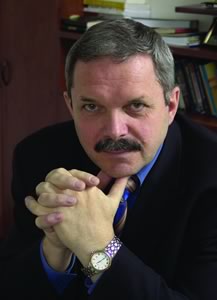Open letter to "The Guardian" regarding article "Goodbye, Golden Rose"

 The article “Goodbye, Golden Rose” published by Tom Cross in The Guardian, 2 September on the old synagogue in Lviv, Ukraine, has numerous errors. Some of them were noted by those who responded online. Here I want to draw attention to other mistakes and serious misinterpretations, which, to me, grossly distort the issue under discussion.
The article “Goodbye, Golden Rose” published by Tom Cross in The Guardian, 2 September on the old synagogue in Lviv, Ukraine, has numerous errors. Some of them were noted by those who responded online. Here I want to draw attention to other mistakes and serious misinterpretations, which, to me, grossly distort the issue under discussion.
First and most important: nobody needs to say goodbye to the Golden Rose: its remnants remain untouched. A single call to a neutral observer would help your respectable newspaper to reveal the real state of affairs.
Secondly, the article has strongly stereotyped Ukrainians; this is just as objectionable as stereotyping Jews.
I cannot speak in the name of all Ukrainians; still, for many of us who live in Lviv, the Golden Rose memorial is not any less dear and valuable as it is for the Jewish community: we see it as a part of our common historical heritage.
Thirdly, it is also irresponsible for a professional journalist to conclude that “there is no monument to the murdered Jews in Lviv’s old town” while “standing at what used to be the ghetto entrance” where a monument to the Jews murdered during the Holocaust has been standing for years!
It was heartbreaking to read the sentimental story about the “one of Lviv’s last Jews” written with Fenimore Cuper’s sensitivity. The truth is, however, that the author has ignored the two thousand member Jewish community now living in Lviv with the vibrant Jewish Home “Hesed-Arye”. To give only one example: it was necessary to rent one of the largest halls in Lviv to celebrate Purim with the local Jewish community in 2010. However, these facts apparently were ignored because they do not fit the gloomy picture by the author of the “last remains of this once flourishing Jewish community”.
Tom Cross has no right to blame Lviv city authorities for “cultural and historical crassness and illiteracy”; indeed many would accuse him of these traits, since the historical information he provides is strikingly incorrect. For example, Jewish people were never the majority of Lviv residents – neither in 1940, nor at any other time. From the end of the 18th century until WWII, the majority were Poles (50-55%), and Jews were roughly a third of the population (30-35%), while Ukrainians were the minority (15-20%).
While rejecting the dark picture drawn by Tom Cross, I do not intend to replace it with a too optimistic one. Indeed, there are problems with the preservation of historical sites of the Jewish community, as well as those of Polish, Ukrainian, Armenian, and other cultures. We live in a country where ideological regulation of life was too often substituted with the power of money. We try to oppose these circumstances to the best of our abilities, but we also know the taste of defeat.
There is no doubt that we need assistance from developed democracies, including media like your newspaper. Alas, it seems like the article written by Tom Gross is counterproductive and does us an ill turn because it is based on groundless exaggerations and false information.
It would be fair if your newspaper could send another journalist to Lviv to state the obvious: “The Golden Rose still remains in Lviv!”









